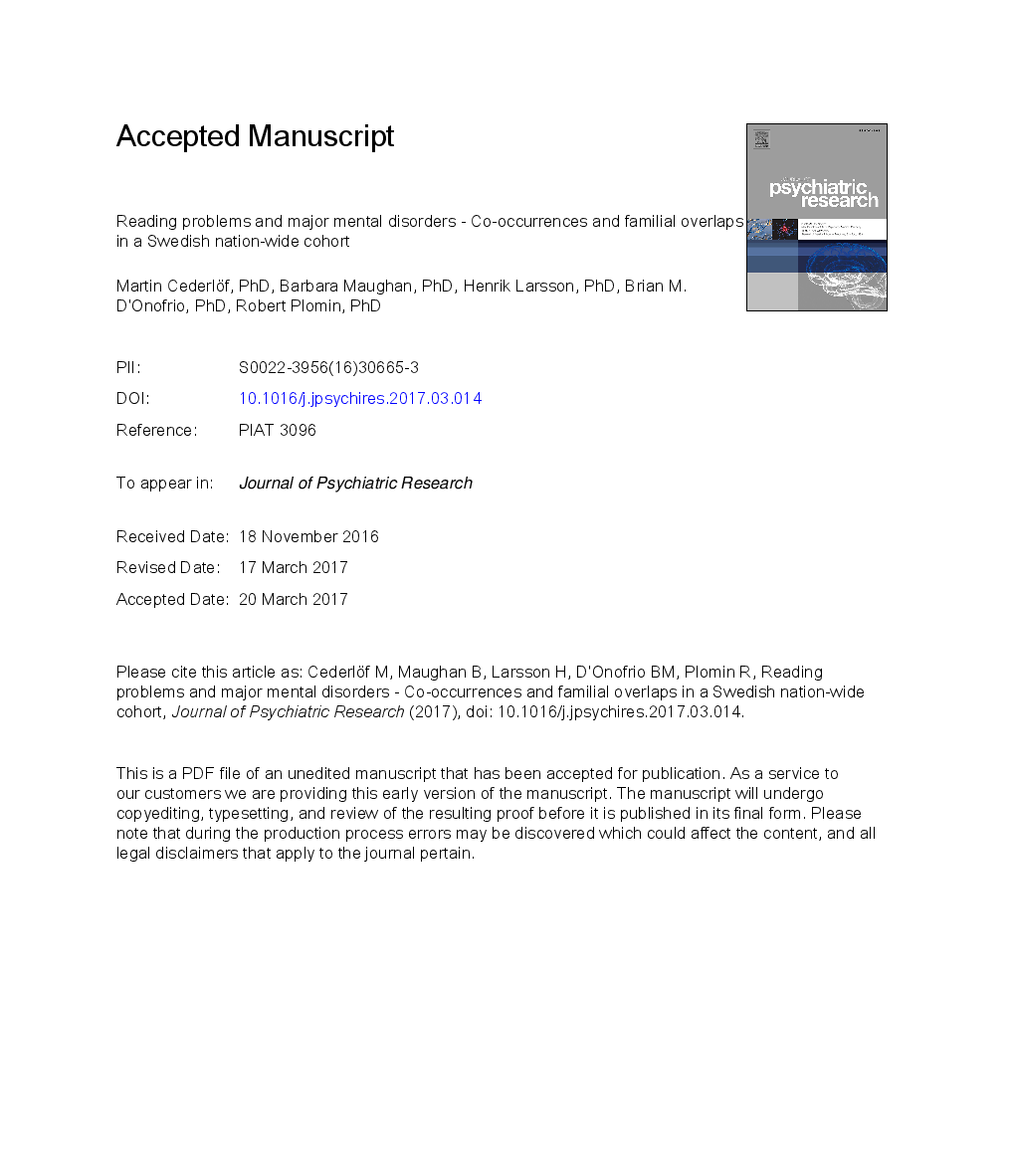Reading problems often co-occur with ADHD and conduct disorder. However, the patterns of co-occurrence and familial overlap between reading problems and other psychiatric disorders have not been systematically explored. We conducted a register-based cohort study including 8719 individuals with reading problems and their siblings, along with matched comparison individuals. Conditional logistic regressions estimated risks for ADHD, autism, obsessive-compulsive disorder, anorexia nervosa, schizophrenia, bipolar disorder, depression, substance use disorder, and violent/non-violent criminality in individuals with reading problems and their siblings. Diagnoses of psychiatric disorders were physician-assigned and ascertained from the Swedish National Patient Register, and crime convictions from the Swedish National Crime Register. We found that individuals with reading problems had excess risks for all psychiatric disorders (except anorexia nervosa) and criminality, with risk ratios between 1.34 and 4.91. Siblings of individuals with reading problems showed excess risks for ADHD, autism, schizophrenia, bipolar disorder, depression, substance use disorder, and non-violent criminality, with risk ratios between 1.14 and 1.70. In summary, individuals with reading problems had increased risks of virtually all psychiatric disorders, and criminality. The origin of most of these overlaps was familial, in that siblings of individuals with reading problems also had elevated risks of ADHD, autism, schizophrenia, bipolar disorder, depression, substance use disorder, and non-violent criminality. These findings have implications for gene-searching efforts, and suggest that health care practitioners should be alert for signs of psychiatric disorders in families where reading problems exist.


